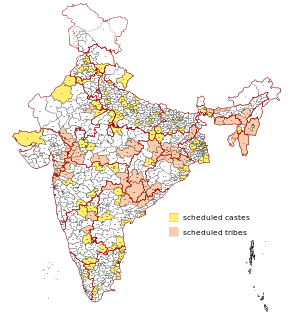| ||||||||||||||||||||||
All 543 seats in the Lok Sabha 272 seats needed for a majority | ||||||||||||||||||||||
|---|---|---|---|---|---|---|---|---|---|---|---|---|---|---|---|---|---|---|---|---|---|---|
| Opinion polls | ||||||||||||||||||||||
| ||||||||||||||||||||||
 | ||||||||||||||||||||||
| ||||||||||||||||||||||
General elections are expected to be held in India by May 2029 to elect the members of the 19th Lok Sabha, the lower house of Parliament.
Background
The tenure of 18th Lok Sabha is scheduled to end in June 2029. The previous general elections were held in April–May–June 2024. After the election, National Democratic Alliance, led by Bharatiya Janata Party, formed the union government, with Narendra Modi continuing in his third term as Prime Minister.
Delimitation
The next Lok Sabha delimitation in India is due after the first census following the year 2026. According to the 84th Amendment to the Constitution of India, the current freeze on the delimitation of constituencies is set to continue until the results of the first census taken after the year 2026 are published.
Women's reservation
The introduction of women's reservation in the Lok Sabha is set to occur after the delimitation exercise based on the census following the year 2026. According to the 106th Amendment Act, 33% of the total seats will be directly allocated to women in Lok Sabha, state legislative assemblies.
Schedule
Chief Election Commissioner Rajiv Kumar has indicated that 2029 elections would be over by the end of April to prevent heat from affecting voter turnout. Until 2004, the general elections were conducted between the cooler months of December and March.
One Nation, One Election
On 18 September 2024 the Modi cabinet approved the 'One Nation, One Election' bill to synchronise elections across the country, which is scheduled to be brought before the Parliament on the 2024 winter session.
Electoral system
All 543 elected MPs are elected from single-member constituencies using first-past-the-post voting.
Eligible voters must be Indian citizens, 18 years or older, an ordinary resident of the polling area of the constituency and registered to vote (name included in the electoral rolls), possess a valid voter identification card issued by the Election Commission of India or equivalent. Some people convicted of electoral or other offences are barred from voting.
Article 83 of the Constitution of India requires elections to the Lok Sabha be held once every five years.
References
- "Terms of the Houses". Election Commission of India. Retrieved 6 June 2024.
- "LS poll final results: NDA 293, INDIA 233". Rediff. 5 June 2024. Retrieved 7 June 2024.
- R, Rangarajan (6 February 2024). "Understanding the delimitation exercise | Explained". The Hindu. ISSN 0971-751X. Retrieved 8 June 2024.
- "'God has given me the opportunity', says PM Modi as women quota bill tabled in LS". Hindustan Times. 19 September 2023.
- De, Abhishek (3 June 2024). "'Next Lok Sabha polls to be over by end of April': 5 big quotes by election body". India Today. Retrieved 11 July 2024.
- "One Nation One Election cleared by Cabinet, bill in Parliament winter session likely". India Today. 18 September 2024.

